Future Now
The IFTF Blog
Devices 'Disappear'
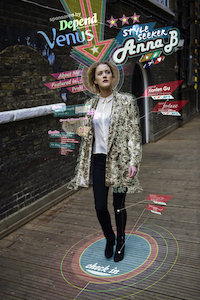 A Vision For Tomorrow's User Interfaces
A Vision For Tomorrow's User Interfaces
Advances in computing power are largely the work of scientists and engineers, whose ingenuity pushes our devices to do more, faster, and with fewer constraints. But it’s often artists that provide us visions of how we might use these new capabilities, what the interfaces of the future will be, and what people will and won’t want from advanced technology.
In his works, London-based designer and filmmaker Keiichi Matsuda has put forth one of the most influential visions of how body area network technology might be used to create a world of augmented reality (AR), in which the world we move through is overlaid with digital information of all kinds.
The Human Experience of the Future
IFTF asked Keiichi to share his visions of the future, walking us through the evolution, body area networks from his perspective in words and images. The human experience of this future may be, he suggests, radically transformative.
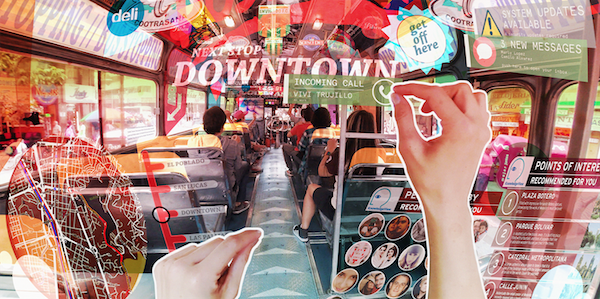
"Body area networks are part of a group of technologies that are leading to a future where computers, systems, and devices ‘disappear.’ …They will no longer be things we look at, but things we experience the world through. …Your body becomes a feedback device, allowing wearable devices to feed you information through your senses. It can be simple: personal headphones, or a vibration when a new message appears. The display technology in some AR devices follow this same logic, scanning images directly to your retina. You’re no longer looking at a screen, your retinas themselves are the screen. ...Systems will cease to be tools employed consciously, and start to become fluid, invisible. Technology will change, from a series of smart objects, to something more like a filter through which we understand reality. This could be a utopian dream: transcendence. But while our data is controlled by governments and private corporations, you can’t help but fear for how vulnerable this shift is making us.”
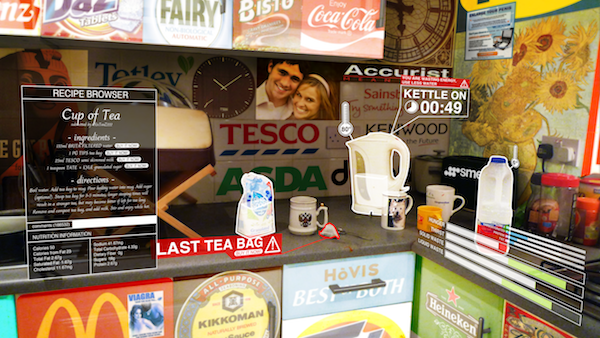
"Everybody will see the world in a different way ...In this world, your experiences will be intensely personal. You will be able to shape some of your own experiences based on your tastes and interests, and will have others shaped for you. You will live in a subjective space, where everything is tuned for your identity, and the line between virtual and physical has long been forgotten. You might look back and laugh about the very concept of objectivity.”
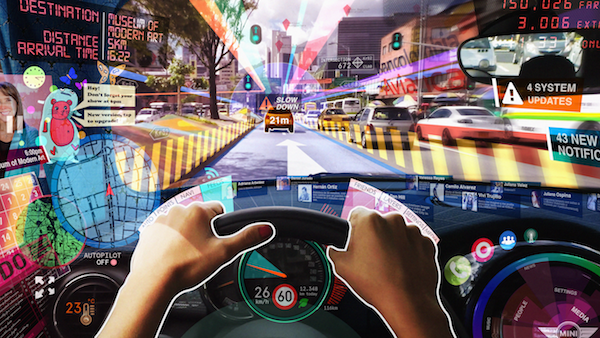
"Maybe at some point there is a service that allows you to swap and share world-views with friends. Then the reality tourism industry takes off, offering a chance to take a break from yourself. First, you are offered celebrity curators. Eventually, ‘purpose-built identities’ emerge, made with a particular outlook on life that is fun, challenging, sexy, or relaxing to inhabit. With all that on offer, you might be tempted to become a perpetual tourist, role-playing life as a character, or as many characters. People may no longer see the point in the individual sense of identity, and prefer to move between roles and realities. What started as a heavily individualistic movement may, ironically, culminate in the destruction of the ego.”
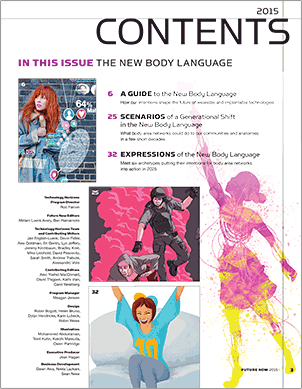 FUTURE NOW—The Complete New Body Language Research Collection
FUTURE NOW—The Complete New Body Language Research Collection
The New Body Language research is collected in its entirety in our inaugural issue of Future Now, IFTF’s new print magazine.
Most pieces in this issue focus on the human side of Human+Machine Symbiosis—how body area networks will augment the intentions and expressions that play out in our everyday lives. Some pieces illuminate the subtle, even invisible technologies that broker our outrageous level of connection—the machines that feed off our passively generated data and varying motivations. Together, they create a portrait of how and why we’ll express ourselves with this new body language in the next decade.
For More Information
For more information on the Tech Futures Lab and our research, contact:
Sean Ness | sness@iftf.org | 650.233.9517



